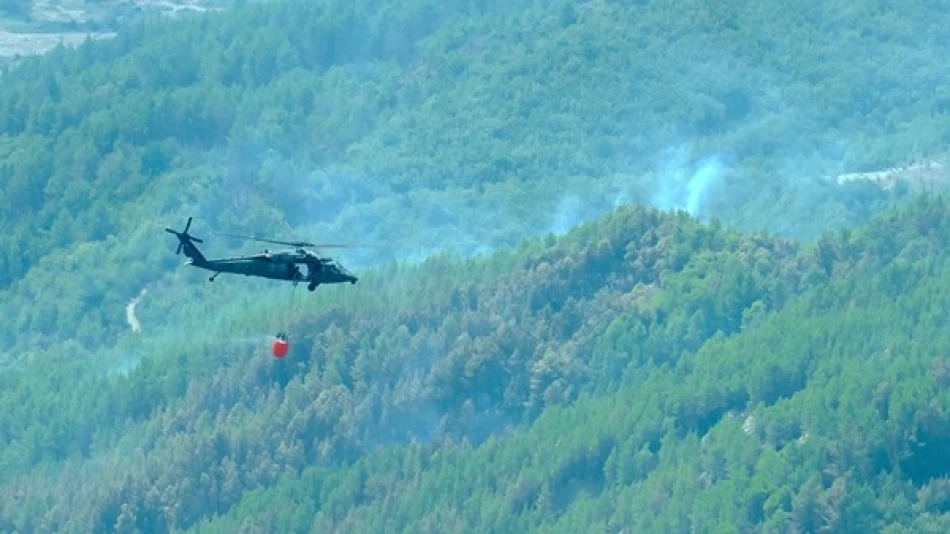
UAE Rescue Team Battles Forest Fires in Albania, Continues Tireless Efforts
UAE Firefighting Mission in Albania Showcases Gulf State's Growing Disaster Diplomacy Strategy
The UAE continues its intensive firefighting operations across multiple regions in Albania, deploying advanced equipment and specialized teams in what represents a calculated expansion of the Emirates' humanitarian diplomacy. This mission, operating under direct orders from President Sheikh Mohammed bin Zayed Al Nahyan, signals how Gulf states are leveraging disaster response capabilities to strengthen international partnerships and project soft power across Europe and beyond.
Operational Scale and Technical Capabilities
Since beginning operations last Tuesday, UAE firefighting aircraft and specialist crews have conducted dozens of aerial sorties, dropping thousands of kilograms of water to contain the blazes. The mission launched immediately after the team's Monday arrival, demonstrating the rapid deployment capabilities that have become a hallmark of UAE international assistance programs.
The operation utilizes state-of-the-art firefighting equipment designed not only to suppress current flames but to prevent re-ignition—a critical factor in Mediterranean climate conditions where dry vegetation and seasonal winds can quickly reignite contained fires.
Strategic Implications of UAE's Disaster Diplomacy
Building European Partnerships
This Albanian mission fits within the UAE's broader strategy of positioning itself as a reliable partner for European nations facing climate-related emergencies. Unlike traditional aid that flows primarily to developing nations, the UAE's willingness to assist European countries like Albania demonstrates its evolution from aid recipient to global humanitarian actor.
The timing is particularly significant as European Union members increasingly recognize the need for diverse partnerships in disaster management, especially as climate change intensifies wildfire seasons across the Mediterranean basin.
Competitive Positioning Among Gulf States
The UAE's proactive response mirrors similar initiatives by other Gulf nations, particularly Saudi Arabia's expanding humanitarian footprint through the King Salman Humanitarian Aid and Relief Centre. However, the UAE's focus on rapid-deployment technical assistance—rather than purely financial aid—distinguishes its approach and builds operational relationships that extend beyond monetary transactions.
Economic and Diplomatic Returns
For investors and policy analysts, these humanitarian missions represent more than altruism. They create pathways for deeper economic cooperation, particularly in sectors where the UAE seeks European expertise—renewable energy, advanced manufacturing, and technology transfer. Albania, while not an EU member, serves as a gateway to Balkan markets where UAE investment has been steadily increasing.
The mission also reinforces the UAE's credentials as a stable, capable partner at a time when European nations are diversifying their diplomatic and economic relationships beyond traditional Western allies. This positioning becomes particularly valuable as global supply chains reorganize and nations seek resilient partnerships across multiple regions.
Climate Change as Diplomatic Opportunity
The Albanian firefighting operation exemplifies how climate-related disasters are creating new forms of international cooperation. As Mediterranean countries face increasingly severe fire seasons, nations with specialized capabilities—like the UAE's desert-tested firefighting expertise—become valuable partners regardless of geographic distance.
This trend suggests that climate adaptation and disaster response will increasingly drive diplomatic relationships, potentially reshaping traditional alliance structures based on shared environmental challenges rather than historical or ideological ties.
Most Viewed News

 Layla Al Mansoori
Layla Al Mansoori






